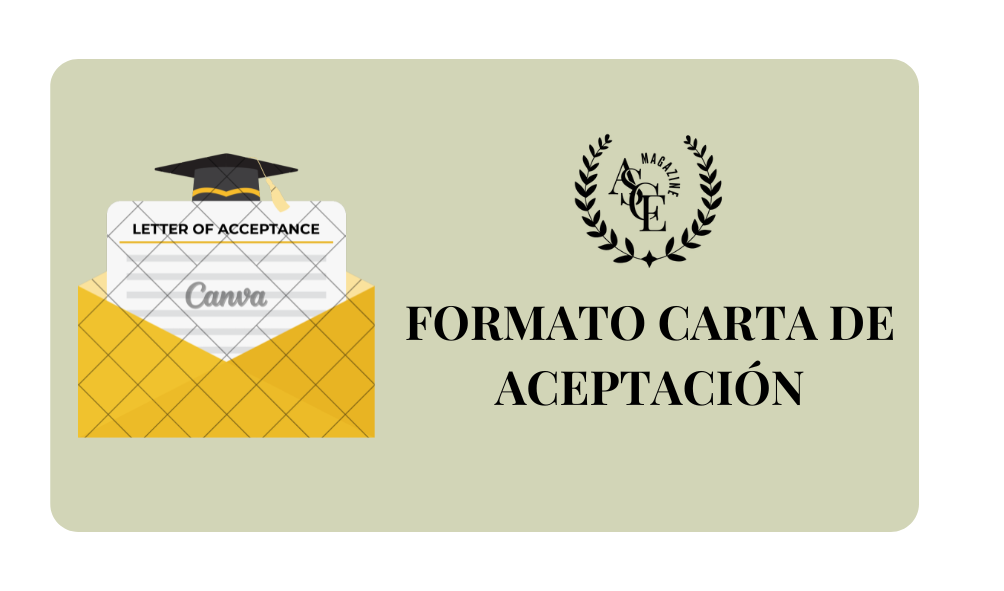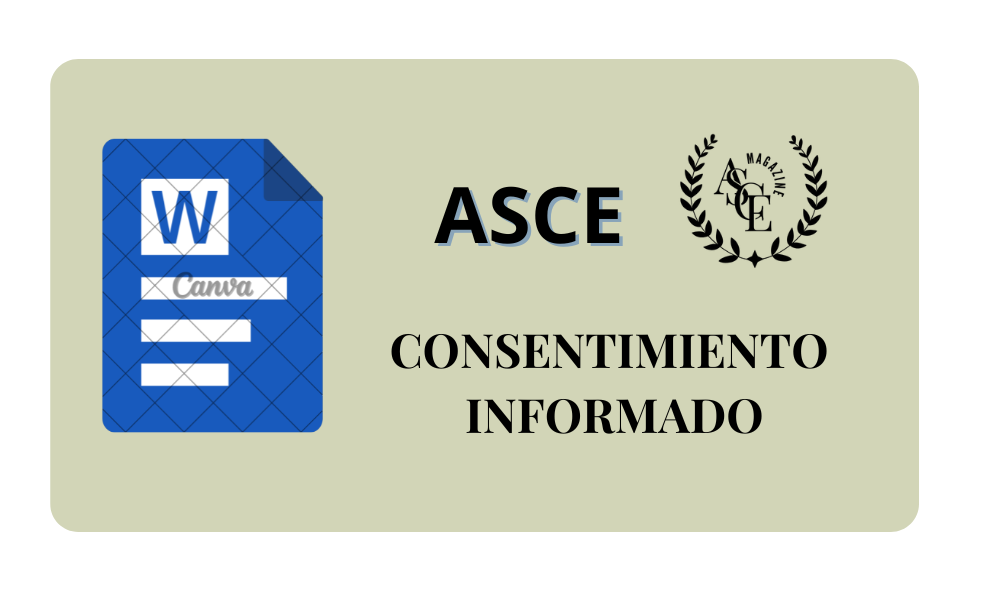The Impact of Active Learning on EFL Learners' Communicative Competence: A Focus on Collaborative and Experiential Approaches
DOI:
https://doi.org/10.70577/ASCE/847.867/2025Keywords:
Active Learning, Communicative Competence, EFL Learners, Collaborative Approaches, Experiential Learning, Language Education, Student-centered Instruction.Abstract
This study aimed to examine the effect of active learning on the enhancement of communicative skills in English as a Foreign Language (EFL) students by employing collaborative and experiential methodologies. The study employed a quasi-experimental mixed-methods design, utilizing a purposive sample of 120 university students categorized into a control group and an experimental group. Throughout an academic semester, the experimental group participated in instructional activities based on collaborative work, real-world problem-solving, dramatizations, simulations, and project-based learning, whereas the control group adhered to a conventional methodology centered on content delivery. Data were gathered using standardized communicative competency assessments (both oral and written), students' reflective journals, and semi-structured interviews with educators. The results demonstrated statistically significant enhancements (p < 0.05) in the fluency, coherence, interaction, and language appropriateness of students engaged in active learning. Furthermore, an enhancement in autonomy, motivation, and active engagement in the learning process was noted. The findings indicate that collaborative and experiential methods, by fostering genuine situations for language application, improve both linguistic proficiency and vital social skills necessary for communicative competence. The study emphasizes the necessity to reevaluate pedagogical approaches in foreign language instruction, directing them towards student-centered models that prioritize the active development of knowledge.
Downloads
References
Akcay, A., & Arslan, Y. (2021). Implementation of a thematic analysis method to develop a qualitative model on the authentic foreign language learning perspective: A case study in the University of Northern Cyprus. ResearchGate. https://www.researchgate.net/publication/354610413
Alzahrani, M. G. (2022). The effects of virtual reality on EFL speaking fluency and motivation. Education and Information Technologies, 27(3), 3899–3916. https://doi.org/10.1007/s10639-021-10718-5
Arancibia, V., & Meneses, F. (2023). Diseños mixtos en la investigación educativa: ventajas y desafíos. Revista Electrónica de Investigación Educativa, 25(3), 1–19. https://www.scielo.org.mx/scielo.php?script=sci_arttext&pid=S1607-40412023000300001
Ashkani, H. (2025). Developing oral fluency through active learning strategies in EFL learners. Asian Journal of Language and Education, 13(2), 45–60. https://www.sciencedirect.com/science/article/pii/S2215039024000327
Azizi, Z. , Namaziandost, E. and Ashkani, P. (2022). Active Learning as an Approach to Fostering EFL Learners’ Speaking Skills and Willingness to Communicate: A Mixed-methods Inquiry. Issues in Language Teaching, 11(2), 93-128. https://doi.org/10.22054/ilt.2023.70542.744
Azkani, A., Namaziandost, E., & Zare, J. (2025). The effects of collaborative learning on communicative competence in Iranian EFL contexts. Iranian Journal of Language Teaching Research, 13(1), 25–39. https://ilt.atu.ac.ir/article_15302.html
Bączkowska, A. (2023). Gamification in EFL education: Enhancing interaction and engagement. Language Teaching Research, 27(1), 34–49. https://doi.org/10.1177/13621688221088209
Baldemar López‑Hidalgo, J. (2025). Revisión sistemática: propuesta de un eje curricular transversal para el aprendizaje del inglés en educación media técnica en Circasia. Código Científico, 11(1), 87–102. https://www.researchgate.net/publication/393678715
Bernal Párraga, A. P., Alcívar Vélez, V. E., Pinargote Carreño, V. G., Pulgarín Feijoo, Y. A., & Medina Garate, C. L. (2025). Pensamiento lógico y resolución de problemas: El uso de estrategias de aprendizaje colaborativo para desarrollar habilidades de razonamiento matemático en contextos cotidianos. Arandu UTIC, 12 (1), 360–378. DOI: https://doi.org/10.69639/arandu.v12i1.605
Bernal Parraga, A. P., Salazar Véliz , E. T., Zambrano Lamilla, L. M., Espinoza Jaramillo , S. G., Morales García , C. S., Shinger Hipatia, N. S., & Zapata Calderón , S. J. (2025). Innovaciones Didácticas para Lengua y Literatura Basadas en el Aprendizaje Personalizado y Colaborativo . Revista Científica De Salud Y Desarrollo Humano , 6(2), 01–32. https://doi.org/10.61368/r.s.d.h.v6i2.574 DOI: https://doi.org/10.61368/r.s.d.h.v6i2.574
Bernal Parraga, A. P., Toapanta Guanoquiza, M. J., Sandra Veronica, L. P., Borja Ulloa, C. R., Esteves Macias, J. C., Dias Mena, B. V., & Orozco Maldonado, M. E. (2024). Desarrollo de Habilidades Sociales y Emocionales a través de Proyectos Colaborativos en Educación Inicial: Estrategias Inclusivas para Estudian-tes con Necesidades Educativas Especiales. Ciencia Latina Revista Científica Multidisciplinar, 8(4), 10134-10154. https://doi.org/10.37811/cl_rcm.v8i4.13156 DOI: https://doi.org/10.37811/cl_rcm.v8i4.13156
Bernal, A., & Guarda, T. (2020). La gestión de la información es factor determinante para elaborar estrategias innovadoras en política educativa pública. Iberian Journal of Information Systems and Technologies, (E27), 35-48.
Braun, V., & Clarke, V. (2006). Using thematic analysis in psychology. Qualitative Research in Psychology, 3(2), 77–101. https://doi.org/10.1191/1478088706qp063oa DOI: https://doi.org/10.1191/1478088706qp063oa
Calderón‑Delgado, S., & Atencio‑González, F. (2023). Aprendizaje colaborativo y autonomía en la enseñanza del inglés como lengua extranjera. Revista Arbitrada de Investigación Educacional, 25(1), 15–31. https://ve.scielo.org/scielo.php?pid=S2665-02822023000100032
Chen, X., & Gong, Y. (2025). Quantitative approaches in EFL education research: Statistical techniques and validation methods. Studies in Educational Evaluation, 76, 102212. https://doi.org/10.1016/j.stueduc.2023.102212
Chica‑Esquivia, S. (2025). Aprendizaje activo en la enseñanza de lenguas extranjeras en América Latina. Educare, 29(2), 45–58. https://ve.scielo.org/scielo.php?pid=S1316-48212025000500060
Chou, M.-H. (2023). Affective and behavioral engagement in EFL learning via task-based instruction. Language Teaching Research Quarterly, 33, 45–62. https://doi.org/10.32038/ltrq.2023.33.04 DOI: https://doi.org/10.32038/ltrq.2023.33.04
Delgado, M., & Herrera, C. (2025). Criterios éticos en investigaciones con estudiantes universitarios. Educación y Sociedad, 44(1), 39–52. https://revistas.unal.edu.co/index.php/edsoc/article/view/12930
Derakhshan, A., & Zhaleh, K. (2023). Technology-integrated instruction and EFL learners’ self-efficacy and communication competence. CALL-EJ, 24(1), 1–21. https://callej.org/journal/24-1/Derakhshan-Zhaleh2023.pdf
Dewaele, J.-M., & Pavelescu, L. M. (2022). Learner-internal variables and willingness to communicate in English as a foreign language: A study on Romanian adolescents. Journal of Multilingual and Multicultural Development, 43(3), 222–235. https://doi.org/10.1080/01434632.2020.1767115 DOI: https://doi.org/10.1080/01434632.2020.1767115
Ellis, R. (2020). Task-based language teaching: Theory and practice. Cambridge University Press. DOI: https://doi.org/10.1017/9781108643689
García, J., & Ramos, P. (2025). Metodología cuasi-experimental en educación lingüística. Revista Iberoamericana de Evaluación Educativa, 18(1), 77–93.
González Capriles, N. (2007). Consideraciones epistemológicas para una psicología desde la perspectiva histórico-cultural. Revista de Psicología, 25(3), 301–318. https://ve.scielo.org/scielo.php?script=sci_arttext&pid=S1316-49102007000300005
González-Lloret, M., & Ortega, L. (2014). Technology-mediated TBLT: Researching technology and tasks. John Benjamins Publishing Company. DOI: https://doi.org/10.1075/tblt.6
Guan, L., Lee, J. C.-K., Zhang, Y., & Gu, M. M. (2025). Investigating the tripartite interaction among teachers, students, and generative AI in EFL education: A mixed-methods study. Computers and Education: Artificial Intelligence, 8, 100384. https://doi.org/10.1016/j.caeai.2025.100384 DOI: https://doi.org/10.1016/j.caeai.2025.100384
Gutiérrez, M. (2016). Proceso de enseñanza‑aprendizaje de la lengua inglesa en Chile: disonancias entre currículum y práctica docente. Estudios Pedagógicos, 42(2), 11–25.
Han, S., Park, Y., & Kwon, J. (2023). Artificial intelligence applications in English language learning: A systematic review. Computers & Education: Artificial Intelligence, 4, 100133. https://doi.org/10.1016/j.caeai.2023.100133 DOI: https://doi.org/10.1016/j.caeai.2023.100133
Jara Chiriboga , S. P., Troncoso Burgos, A. L., Ruiz Avila, M. M., Cosquillo Chida, J. L., Aldas Macias, K. J., Castro Morante, Y. E., & Bernal Párraga, A. P. (2025). Inteligencia Artificial y Aprendizaje Personalizado en Lenguas Extranjeras: Un Análisis de los Chatbots y los Asistentes Virtuales en Educación. Revista Científica De Salud Y Desarrollo Humano , 6(1), 882–905. https://doi.org/10.61368/r.s.d.h.v6i1.515 DOI: https://doi.org/10.61368/r.s.d.h.v6i1.515
Jara Chiriboga, S. P., Valverde Alvarez, J. H., Moreira Pozo, D. A., Toscano Caisalitin, J. A., Yaule Chingo, M. B., Catota Quinaucho, C. V., & Bernal Parraga, A. P. (2025). Gamification and English Learning: Innovative Strategies to Motivate Students in the Classroom . Revista Científica De Salud Y Desarrollo Humano , 6(1), 1609–1633. https://doi.org/10.61368/r.s.d.h.v6i1.549 DOI: https://doi.org/10.61368/r.s.d.h.v6i1.549
Kessler, G., & Bikowski, D. (2020). Personal learning environments and learner autonomy in the digital age. Language Learning & Technology, 24(2), 22–34. https://www.lltjournal.org/item/3092
Kuluşaklı, E., & Genç, G. (2024). L2 communication apprehension and communicative competence of pre-service English teachers. Heliyon, 10(16), e32587. https://doi.org/10.1016/j.heliyon.2024.e32587 DOI: https://doi.org/10.1016/j.heliyon.2024.e32587
Lantolf, J. P., & Poehner, M. E. (2014). Sociocultural theory and the pedagogical imperative in L2 education: Vygotskian praxis and the research/practice divide. Routledge. DOI: https://doi.org/10.4324/9780203813850
Lee, J. (2024). Understanding student motivation and engagement in online language learning: A qualitative approach. Scandinavian Journal of Educational Research, 68(1), 1–18. https://doi.org/10.1080/00313831.2022.2134546
Ling, W. (2023). A mixed-methods analysis of oral proficiency development in flipped classrooms. Language Teaching Research, 27(1), 58–74. https://doi.org/10.1177/13621688211001093
Liu, Y., & Zhang, L. (2024). Exploring the relationship between speaking accuracy and fluency in EFL learners using immersive simulations. Heliyon, 10(3), e136511. https://doi.org/10.1016/j.heliyon.2024.e37620 DOI: https://doi.org/10.1016/j.heliyon.2024.e37620
López-Hidalgo, D. B., Mazo-Atiaja, A. P., & Flores-Ubidia, J. L. (2025). Enseñanza del inglés mediante metodologías activas en entornos virtuales y presenciales. MQRInvestigar, 9(2), e478. https://doi.org/10.56048/MQR20225.9.2.2025.e478 DOI: https://doi.org/10.56048/MQR20225.9.2.2025.e478
Martínez, C., & Sánchez, L. (2024). Análisis temático en investigaciones lingüísticas: una guía metodológica. Revista de Investigación Educativa, 42(2), 275–292. https://revistas.um.es/rie/article/view/549121
Ning, F., & Danso, K. (2025). Validity and reliability in EFL studies: Insights from recent empirical work. Language Assessment Quarterly, 22(1), 19–35. https://doi.org/10.1080/15434303.2024.1879620
Nishantha, K. P., & Jayasinghe, U. (2023). Interactive pedagogical strategies and learner autonomy in EFL: Evidence from Sri Lanka. TESOL Journal, 14(1), e00845. https://doi.org/10.1002/tesj.845 DOI: https://doi.org/10.1002/tesj.845
Padilla Chicaiza, V. A., Chanatasig Montaluisa, B. M., Moreira Cedeño, J. del C., Molina Ayala, E. T., Estela Teresa, S. V., & Bernal Parraga, A. P. (2025). Inteligencia Artificial y Aprendizaje de Idiomas: Personalización del Aula de Inglés a Través de Plataformas Adaptativas. Revista Veritas De Difusão Científica, 6(2), 477–506. https://doi.org/10.61616/rvdc.v6i2.643 DOI: https://doi.org/10.61616/rvdc.v6i2.643
Park, H., & Jung, J. (2024). Interactive tools and learner engagement in online EFL classrooms. Education and Information Technologies, 29(1), 145–162. https://doi.org/10.1007/s10639-023-11782-3
Rubio, F., & Thoms, J. J. (2022). Building communicative competence through experiential learning: A task-based approach. Foreign Language Annals, 55(1), 33–52. https://doi.org/10.1111/flan.12541 DOI: https://doi.org/10.1111/flan.12541
Ruiz, E., & Castro, D. (2024). Limitaciones metodológicas en estudios sobre enseñanza del inglés: análisis crítico. Perfiles Educativos, 46(3), 67–84. https://doi.org/10.22201/iisue.24486167e.2024.202.81239
Salam, Y. M., & Luksfinanto, Y. (2024). A comprehensive review of communicative language teaching (CLT) in modern classrooms. Lingeduca: Journal of Language and Education Studies, 3(1), 58–70. https://doi.org/10.70177/lingeduca.v3i1.1338 DOI: https://doi.org/10.70177/lingeduca.v3i1.1338
Seemanath, S., & Watanapokakul, S. (2024). Enhancing Thai EFL learners’ communication through project-based learning. Asian EFL Journal, 26(2), 120–137. https://files.eric.ed.gov/fulltext/EJ1415517.pdf
Soto, M., Espinosa, J., & Rojas, C. (2023). Estrategias para fomentar la motivación en EFL: una revisión desde Ecuador. Revista Venezolana de Educación, 18(1), 55–70. https://ve.scielo.org/scielo.php?pid=S2739-00632025000102006
Teng, M. F., & Wang, C. (2022). The impact of reflective thinking on EFL speaking performance in task-based learning. Asia Pacific Education Review, 23(2), 345–360. https://doi.org/10.1007/s12564-021-09739-8
Torres Illescas, V., Villacrés Prieto, P., Román Cabrera, J., Bernal Párraga, A. (2024). Charting the Path of Reading Development: A Study on the Importance and Effective Strategies for Reading in Early Ages Based on Technology. In: Gervasi, O., Murgante, B., Garau, C., Taniar, D., C. Rocha, A.M.A., Faginas Lago, M.N. (eds) Computational Science and Its Applications – ICCSA 2024 Workshops. ICCSA 2024. Lecture Notes in Computer Science, vol 14820. Springer, Cham. https://doi.org/10.1007/978-3-031-65285-1_2 DOI: https://doi.org/10.1007/978-3-031-65285-1_2
Torres, D., & Ortiz, A. (2025). Validez de instrumentos cualitativos en estudios de adquisición lingüística. Revista Colombiana de Educación, 88(1), 111–129. https://revistas.pedagogica.edu.co/index.php/RCE/article/view/15780
Velásquez-Rodas, I. (2025). Revisión sistemática: Propuesta de un eje curricular transversal para el aprendizaje del inglés en educación media técnica en Circasia. Portal de la Ciencia, 6(S1), 287–307. https://doi.org/10.51247/pdlc.v6iS1.571 DOI: https://doi.org/10.51247/pdlc.v6iS1.571
Villao, M., Suárez, K., & Cedeño, R. (2025). Aplicación de estrategias activas en la enseñanza del inglés en contextos universitarios ecuatorianos. Revista Científica Ecuatoriana de Lenguas, 18(2), 101–115.
Vygotsky, L. S. (1978). Mind in society: The development of higher psychological processes. Harvard University Press.
Wei, J., & Luo, C. (2024). L2 communication apprehension and its relationship with speaking performance: Evidence from Chinese undergraduates. Heliyon, 10(4), e086183. https://doi.org/10.1016/j.heliyon.2024.e086183
Wu, X., & Zhao, L. (2024). Evaluating ChatGPT in enhancing EFL students' discourse: A longitudinal study. arXiv. https://arxiv.org/abs/2407.07393
Zhou, X. (2023). Speech recognition and AI assistants in second language acquisition: Benefits and limitations. Computer Assisted Language Learning, 36(2), 89–107. https://doi.org/10.1080/09588221.2022.2131875
Downloads
Published
How to Cite
Issue
Section
License
Copyright (c) 2025 Diego Alejandro Fernández Cando, Vannesa Alexandra Abarca Alulema, Lisbeth Margarita Tituaña Cumbal, Maria Mishel Chisaguano Quishpe, Olayis Verónica Cuero González

This work is licensed under a Creative Commons Attribution-NonCommercial-NoDerivatives 4.0 International License.
Eres libre de:
- Compartir : copiar y redistribuir el material en cualquier medio o formato
- Adaptar : remezclar, transformar y desarrollar el material
- El licenciante no puede revocar estas libertades siempre y cuando usted cumpla con los términos de la licencia.
En los siguientes términos:
- Atribución : Debe otorgar el crédito correspondiente , proporcionar un enlace a la licencia e indicar si se realizaron cambios . Puede hacerlo de cualquier manera razonable, pero no de ninguna manera que sugiera que el licenciante lo respalda a usted o a su uso.
- No comercial : no puede utilizar el material con fines comerciales .
- CompartirIgual — Si remezcla, transforma o construye sobre el material, debe distribuir sus contribuciones bajo la misma licencia que el original.
- Sin restricciones adicionales : no puede aplicar términos legales ni medidas tecnológicas que restrinjan legalmente a otros hacer algo que la licencia permite.



































